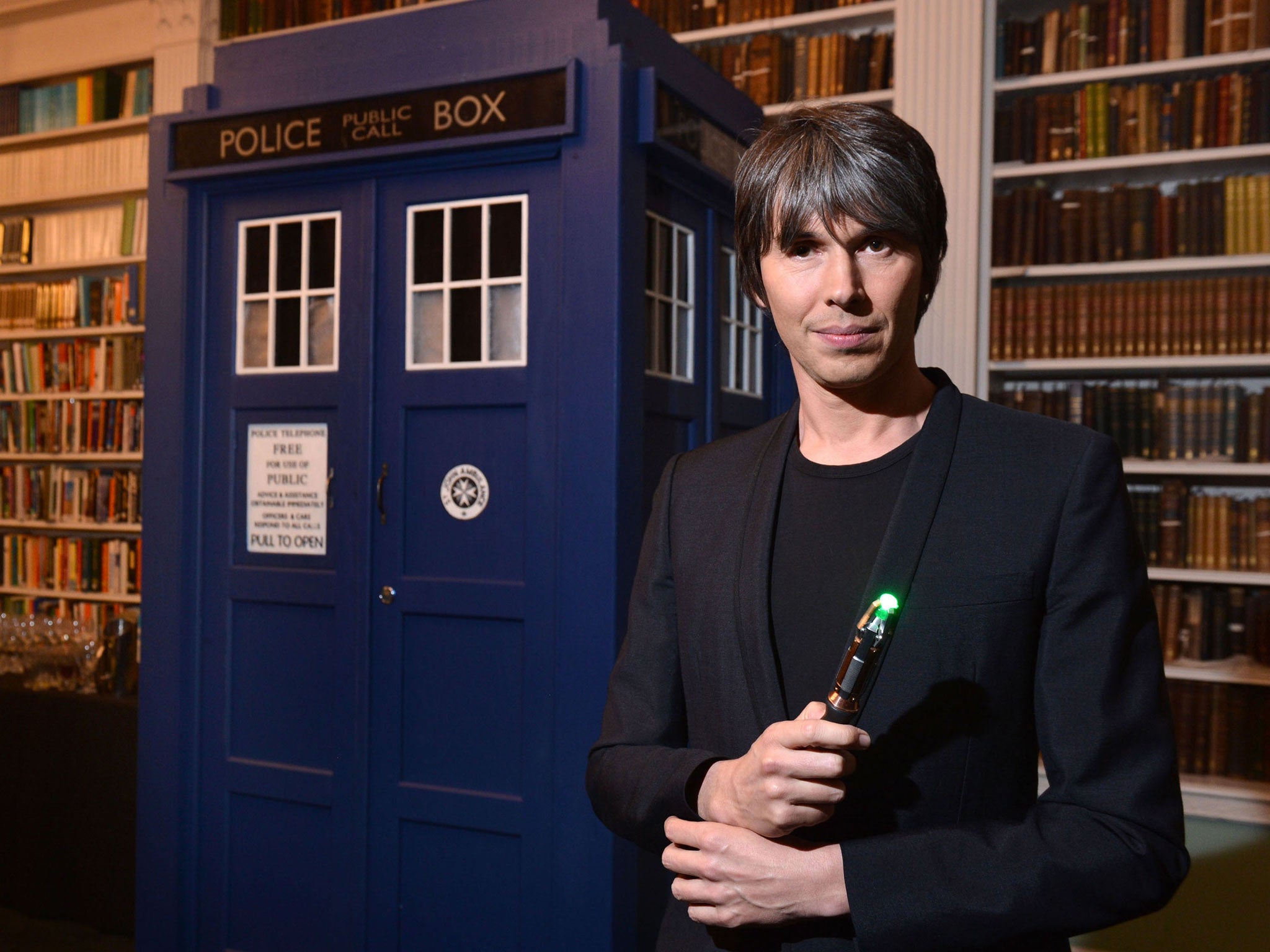The Science of Doctor Who: Prof Brian Cox gives fans the time of their lives

Your support helps us to tell the story
From reproductive rights to climate change to Big Tech, The Independent is on the ground when the story is developing. Whether it's investigating the financials of Elon Musk's pro-Trump PAC or producing our latest documentary, 'The A Word', which shines a light on the American women fighting for reproductive rights, we know how important it is to parse out the facts from the messaging.
At such a critical moment in US history, we need reporters on the ground. Your donation allows us to keep sending journalists to speak to both sides of the story.
The Independent is trusted by Americans across the entire political spectrum. And unlike many other quality news outlets, we choose not to lock Americans out of our reporting and analysis with paywalls. We believe quality journalism should be available to everyone, paid for by those who can afford it.
Your support makes all the difference.Saturday 23 November is the "The Day of the Doctor", aka the 50th anniversary of the first broadcast of Doctor Who. Although, of course, as all good students of Whovian physics know, Saturday has already happened, will happen and is also continuously happening.
Non-Whovian physicists had a chance to catch up in this televised lecture in which Prof Brian Cox aimed to explore The Science of Doctor Who on BBC2. Is time travel possible? Do aliens really exist? Could a black hole provide a power source for a 1960s-style police box? That sort of thing.
Though Johnny Ball did his best in the Eighties, the televised science lecture is still strongly associated with those deathly-dull Open University programmes that the BBC used to broadcast early in the morning. Luckily, Cox had a few tricks up his sleeves to stop us nodding off. Instead of intercutting archive clips from the show, he appeared alongside out-going Time Lord, Matt Smith, in a series of sketches that allowed the Doctor to poke fun at the Professor ("What year is this? From your hair, I'd say the Sixties") while whetting appetites for the anniversary episode a week tomorrow.
The audience was filled with the celebrity fans of both Cox and Doctor Who. The likes of Robert Webb, David Baddiel and Jessica Hynes were content to look on and marvel from their seats, but comedian Rufus Hound, physicist Jim Al-Khalili and actor Charles Dance bounded down the stairs to join in some demonstrations. "This takes me back," said Dance as he sprayed a chemical solution into a Bunsen burner to produce a shower of brightly coloured sparks. "To school chemistry lessons?" asked Cox. "No, to early psychedelic rock concerts."
Well, Coxy is the rock star physicist, isn't he? He can recite the speed of light off the top of his head ("Altogether now: 299,792,458 metres per second!") and make the super-scientific seem very nearly comprehensible, all while emoting that trademark sense of wonder. There was no sparkling firmament visible inside the Royal Institution lecture hall, so Coxie improvised. "Beautiful," he murmured reverently over a black-and-white line graph – and we took his word for it.
Join our commenting forum
Join thought-provoking conversations, follow other Independent readers and see their replies
Comments